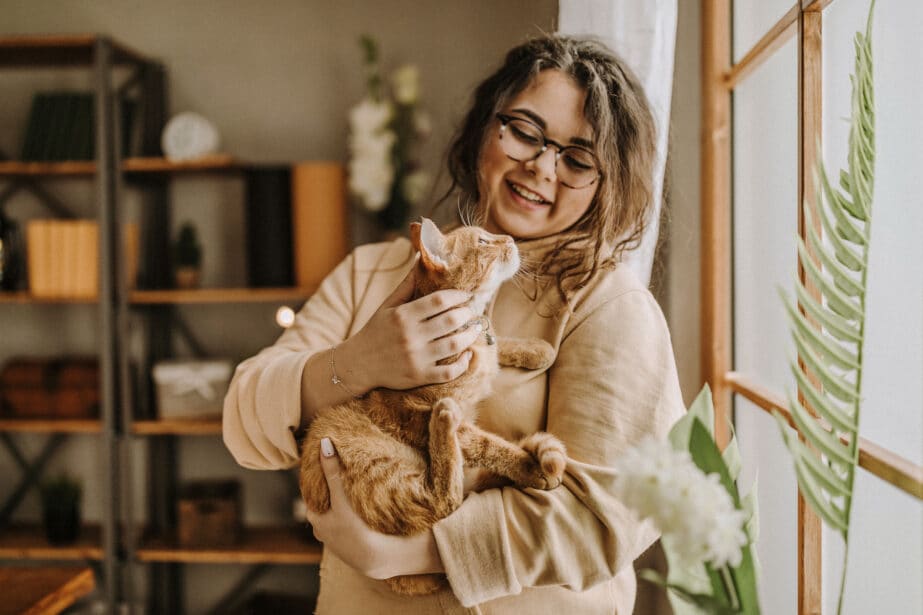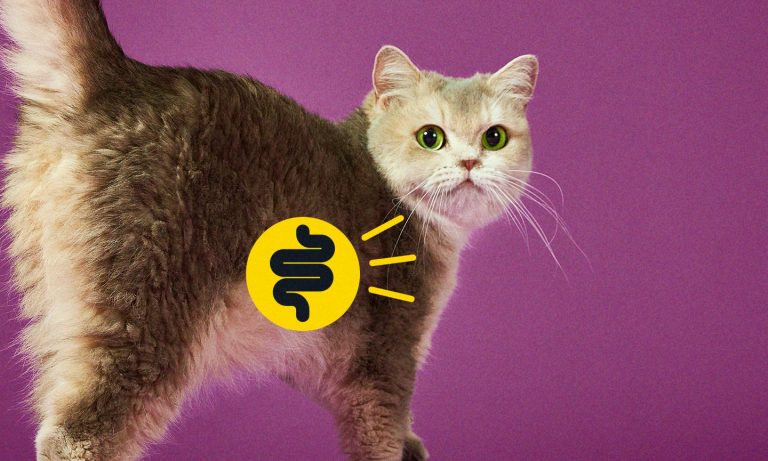Humans often turn to a multi-vitamin to supplement their diet as it can be hard to get all your daily requirements of nutrients. However, cats who eat an Association of American Feed Control Officials (AAFCO) approved food from a reputable veterinary brand that is formulated and balanced by veterinary nutritionists, rarely need supplementation with multivitamins.
Let’s dive into this topic and learn more from veterinarians about cat vitamins and their needs.
In This Guide:
What Goes Into a Cat Multivitamin?
Cat multivitamins can vary from brand to brand, but there are a few key ingredients you’ll almost always find.
“Most contain varying blends of taurine, which is an amino acid that’s essential for heart function in cats. Taurine must be obtained from a cat’s diet, as they cannot produce it themselves,” says Jamie Richardson, DVM, medical chief of staff for Small Door Veterinary in New York. “Cat multivitamins also often contain B vitamins, probiotics, electrolytes, omega fatty acids, and iron.”
Dr. Richardson explains that an omega fatty acid supplementation can help decrease inflammation associated with arthritis, atopic dermatitis, and chronic kidney disease, and can even help improve heart and brain function as your cat ages.
As for those probiotics (a type of healthy bacteria), Dr. Richardson say that they may improve or maintain gastrointestinal health, meaning they can help keep your kitty’s gut and digestive system in tip-top shape.
“The benefits of probiotics on gastrointestinal health and the gut biome are well established, and we are establishing possible links between gut health and overall systemic body health,” says Dr. Richardson.
“B vitamins play an important role in the production of red blood cells, as well as digestive, nervous system, and skin health,” Dr. Richardson adds, while, “electrolytes regulate nerve and muscle function and help balance hydration and the blood’s pH. Iron is also vital for the development of red blood cells, deficiencies of which can lead to anemia.”
So, Should I Give My Cat a Multivitamin?
The answer to this question is best answered by your veterinarian. But if you feed your cat a well-balanced diet that meets the basic nutritional requirements for a cat as established by AFFCO, then a cat multivitamin is likely not necessary. (Always consult your vet before introducing any new supplements to your cat’s diet—more on that later!)
However, Dr. Richardson says that if your cat food doesn’t meet your kitty’s nutritional requirements, such as with home-cooked diets, then a multivitamin may be integral to their health and wellbeing.
To make a long story short: A cat multivitamin serves as a quick and easy solution in cases where your cat isn’t getting the proper amount of vital nutrients—specifically taurine, omega fatty acids, and probiotics.
Should I Speak to a Veterinarian Before Giving My Cat a Multivitamin?
Your vet can help you identify what, if anything, is currently missing in your cat’s diet and which vitamins might be best for their individual needs. This conversation will also ensure you don’t give your cat a supplement that might negatively impact them.
“Certain disease conditions require supplementation of vitamins and/or electrolytes,” Dr. Richardson explains. “For example, cats with kidney disease may benefit from supplemental potassium.”
“Equally, there might be underlying health concerns where a multivitamin may do more harm,” she warns.
The bottom line? It is always important to have a conversation with your vet before giving your cat multivitamins or any other supplements.
What Are the Best Cat Multivitamins?
After confirming with your vet what specific vitamins and minerals you should be looking for, Dr. Richardson recommends prioritizing any option that smells and tastes yummy since cats are notoriously picky when it comes to this stuff! (If you’re struggling on delivery, try giving your cat pills in a covert and delicious manor, such as Greenies™ Feline Pill Pockets™ Salmon Flavor Cat Treats.)
Here are a few cat multivitamin options:
- For a gel, consider Nutri-Vet® Multi-Vite™, which comes in a tasty salmon flavor for picky cats.
- For a liquid option, consider Pet-Tinic® Liquid Vitamin-Mineral Dog & Cat Supplement, which is crafted with a yummy meat flavor and boasts vitamins B-6, B-12, and iron.
- And for a chewable tablet, VetriScience® Nu Cat™ Multivitamin includes omega fatty acids and taurine, among other key minerals.
If you don’t see omega fatty acids included on the label of your cat’s multivitamin, Dr. Richardson encourages discussing adding this supplement to their diet, as well. “I frequently recommend giving cats an omega fatty acid supplement, such as Nutramax® Welactin®. Got a picky eater on your hands? Also consider Zesty Paws® Omega Cat Mousse. This lickable mousse is crafted with yummy tuna, fish broth, and flaxseed oil.
Finally, Richardson also recommends a probiotics supplement if your vet determines your kitty to be lacking in the gut health department. She recommends Purina® Pro Plan® FortiFlora® Probiotic Cat Supplement.
“There is a great deal of science that proves the benefits of these in a variety of applications,” says Richardson.
As always, remember to speak with a veterinarian who has a full understanding of your pet’s past and current health before giving any cat vitamins, multivitamins, or other supplements. Together, you can ensure you’re giving your cat everything they need (and nothing they don’t) for a happy, healthy, and long life!
Expert input provided by Jamie Richardson, DVM, medical chief of staff for Small Door Veterinary in New York.
This content was medically reviewed by Chewy vets.
Like this story? Check out more of our favorite reads:
Share:















